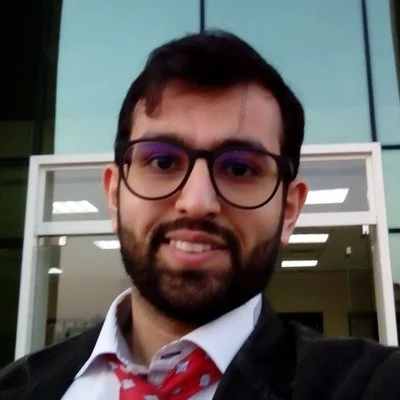A History of Western Philosophy
Course

About The Course
In this 12-week course, students will journey through the rich tapestry of Western philosophy, starting from the foundational ideas of the Presocratic, moving through the classical thoughts of Plato and Aristotle, and delving into the intricate debates of mediaeval, rationalist, empiricist, and contemporary philosophers. Utilizing Philosophy and Philosophers: An Introduction to Western Philosophy by John Shand as the primary text, the course aims to equip students with a comprehensive understanding of the major tenets and evolutions of Western philosophical thought, preparing them for deeper academic explorations in the field.
Course Team
At A Glance
 12 Live Online Sessions
12 Live Online Sessions  Duration: 12+ Weeks
Duration: 12+ Weeks  Saturdays, 3 PM - 4:30 PM (London, UK)
Saturdays, 3 PM - 4:30 PM (London, UK)  Video Recordings Available
Video Recordings Available  Access to Mobile App
Access to Mobile App  Certificate
Certificate  From £14.99/Month (For 4 Months)
From £14.99/Month (For 4 Months)
Enroll Now
- Starts on 6th January 2024
- Course Fee:
Pay in Full:£79.99£59.99
Pay in 4 Installments: £14.99 per month - Registration Deadline: 5th January 2024
Al Balagh Scholarship
AlBalagh Scholarship is available for learners who cannot afford the fee. Learn More and Apply
Course Overview
Dive deep into the intricate world of Western philosophy with this comprehensive 12-week course. Spanning from the ancient musings of the Presocratic to the cutting-edge debates of contemporary thinkers, this course offers students a holistic understanding of the evolution and impact of Western philosophical thought.
Learning Outcomes
- Comprehension of Historical Progression: By the end of the course, students will be able to trace the chronological development of Western philosophical thought, recognizing key shifts from the Pre Socratic era to contemporary philosophical movements.
- Analytical Skills: Students will develop the ability to critically analyse and evaluate the central arguments, concepts, and methodologies presented by major Western philosophers, demonstrating a deep understanding of their significance and implications.
Here is the course outline:
Welcome Aboard: Course IntroductionExploring the evolution of philosophical thought from ancient Greece to modern times, tracing ideas, thinkers, and their enduring influences. |
IT- OrientationThis IT Orientation explains how you can learn essential information and discover, connect, navigate this portal and build a foundation for a successful journey ahead. |
Session 1- Pre Socratic Greek PhilosophyPre-Socratic Greek Philosophy investigates the fundamental nature of reality, using reason and speculation to explore cosmology, metaphysics, and ethics. |
Session 2- Classical Greek PhilosophyClassical Greek Philosophy pursues wisdom, examining ethics, metaphysics, politics, and epistemology, notably through Plato, Aristotle, and Socrates' teachings. |
Session 3- Medieval PhilosophyExploring existence, knowledge, and morality through reason and faith in the Middle Ages, merging theology with philosophy for understanding. |
Session 4- RationalismRationalism emphasizes reason as the primary source of knowledge, asserting innate ideas and deductive reasoning over sensory experience. |
Session 5- EmpiricismEmpiricism stresses experience as the foundation of knowledge, relying on observation, experimentation, and sensory perception to understand the world. |
Session 6- Transcendental IdealismTranscendental Idealism posits that the mind structures human experiences, shaping reality, suggesting that objects exist through perception and cognition. |
Session 7- Later German PhilosophyLater German Philosophy involves complex inquiries into existence, knowledge, and ethics, notably by thinkers like Hegel, Schopenhauer, and Nietzsche. |
Session 8- Analytical PhilosophyAnalytical Philosophy seeks clarity through logical analysis, emphasizing language, logic, and rigorous examination of concepts for understanding problems. |
Session 9- Phenomenology and ExistentialismPhenomenology studies direct experiences, while Existentialism delves into individual existence, freedom, choice, and the search for personal meaning and authenticity. |
Session 10- Logical Positivism and FalsificationismLogical Positivism asserts meaningful statements as verifiable through empirical evidence, while Falsificationism focuses on disprovability and empirical testing of hypotheses. |
Session 11- Linguistic PhilosophyLinguistic Philosophy examines language's role in philosophical problems, emphasizing clarity, meaning, and the relationship between language and thought. |
Session 12- Recent PhilosophyRecent philosophy explores diverse themes, from technology's impact on humanity to ethics, identity, reality, and environmental concerns in society. |
Completion
The following certificates are awarded when the course is completed:
 |
A History of Western Philosophy |




(3).png?lmsauth=401bc9a751a1384a01d518931aef05980231a962)
.jpeg?lmsauth=20c38b738ae72dadfffc864a114a427f837cf07e)
